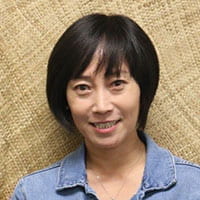CLeaR Fellows 2020 – Dr Sunhee Koo
ANTHRO 103, Musics of the World in Everyday Lives: A flipped classroom model
 Sunhee is a Senior Lecturer in Ethnomusicology in the School of Social Sciences at the University of Auckland, specialising in East Asian performing arts and in the migration and settlement experiences of diasporic Koreans in the U.S., China, Korea, and Japan. She has published a number of works in prestigious journals, and her book, Sound of the Border: Music and Identity of the Korean Minority Nationality in China, will be published by the University of Hawai‘i Press. Her research explores the complexity of modern East Asia where people of various social and cultural backgrounds intersect with varying visions of who they are and where they belong. She argues that music manifests cultural collision and the convergence of late modernity characterized by ongoing migration and the transnational movement of people and goods.
Sunhee is a Senior Lecturer in Ethnomusicology in the School of Social Sciences at the University of Auckland, specialising in East Asian performing arts and in the migration and settlement experiences of diasporic Koreans in the U.S., China, Korea, and Japan. She has published a number of works in prestigious journals, and her book, Sound of the Border: Music and Identity of the Korean Minority Nationality in China, will be published by the University of Hawai‘i Press. Her research explores the complexity of modern East Asia where people of various social and cultural backgrounds intersect with varying visions of who they are and where they belong. She argues that music manifests cultural collision and the convergence of late modernity characterized by ongoing migration and the transnational movement of people and goods.
I developed a new teaching and learning method for the Stage 1 Anthropology course—ANTHRO 103, Musics of the World in Everyday Lives, which will be co-taught with Prof Gregory Booth and Daniel Hernandez (GTA) in S2, 2020.
In order to increase students learning outcomes and to foster a student-staff interactive environment, I intended to adapt Flipped Learning Method into this course; which is slightly different from the “Flipped Classroom Model”. The latter is often characterised with student’s work outside the classroom by accessing pre-recorded lecturers, while in-class meeting is turned into a discussion and homework space where students interact with their teachers and peers.
Flipped learning is a pedagogical approach where not only conventional in-class lectures and outside assignments are flipped but also group learning space is transformed into an individual or small group learning environment where teachers guide students to creatively apply the concepts they have learnt in class to evaluate and analyse the contents introduced in class. For teaching ANTHRO 103, I combined the two aforementioned teaching methods together (flexibility). Firstly, it engaged outside classroom work, but not watching pre- CLeaR Fellows application recorded lecturers instead viewing audio-visual documents in advance so that students can prepare for the analysis of those documents in class by applying the concepts and issues introduced by the teachers (active learning).
As an ethnomusicology course in which a variety of audio-visual materials and even live music performances are engaged, ANTHRO 103 students will be guided to develop critical view and learn the variety of world music by interacting with teachers and community-based guest musicians and accessing and evaluating online and offline resources that surround their lives (relevancy). In addition, to foster small group learning and interactive teaching-learning environment, ANTHRO 103 engages a range of small group activities; divided into smaller groups from the beginning of the semester, each group will form a small learning community, within which student members build the relationship with peers, complete group projects, and help each other in preparing quizzes/exams (meaningful assessment). Each teacher guides a set of student groups and interact with them in and outside the classroom for advice (flexibility and availability of teachers).
In order to invert the conventional lecture assignment classroom into a new flipped learning class, much work of course preparation needed to be preceded before the onset of Semester Two. Therefore, I used the CLeaR fellowship for the preparation of course planning and preparation for 2020.